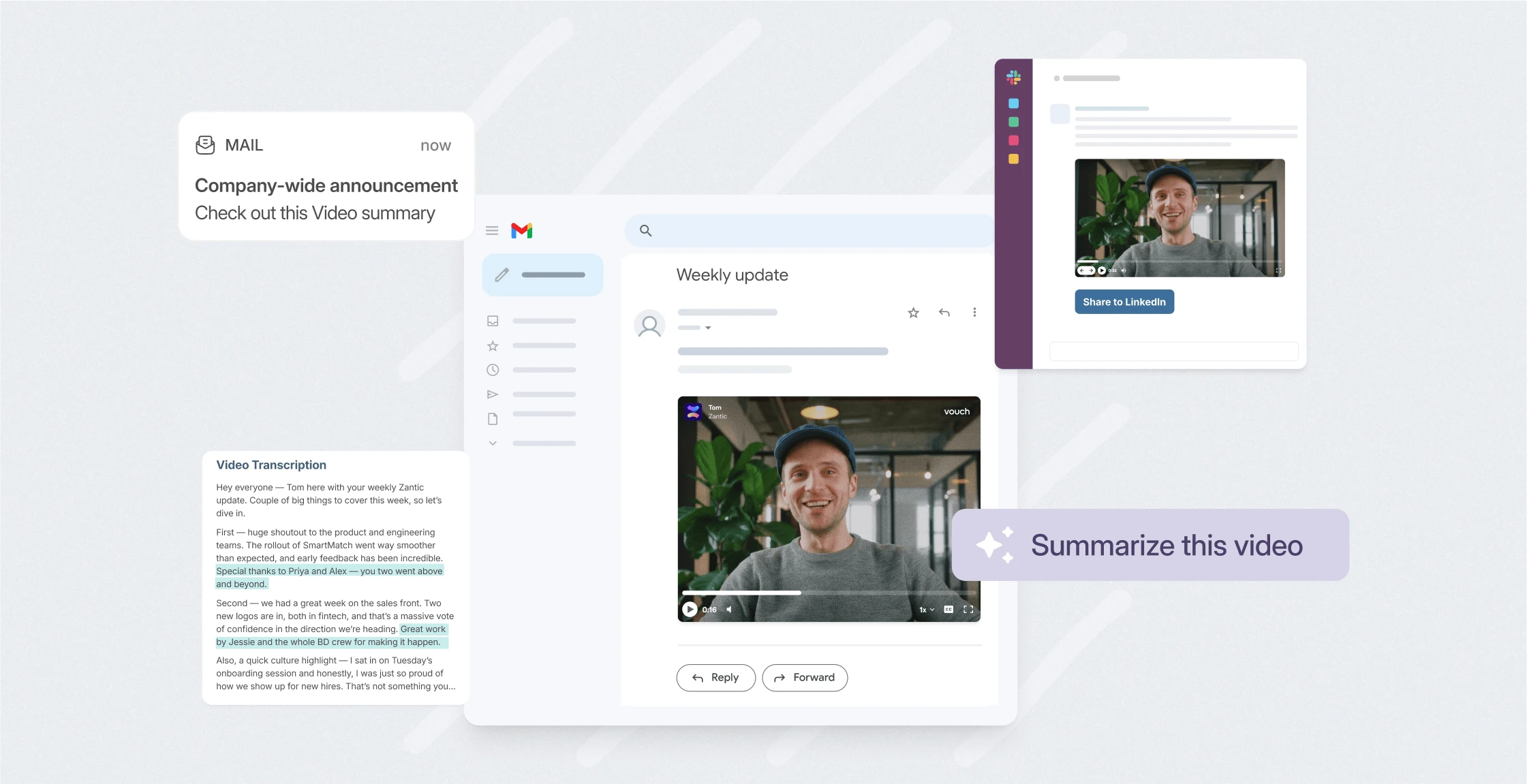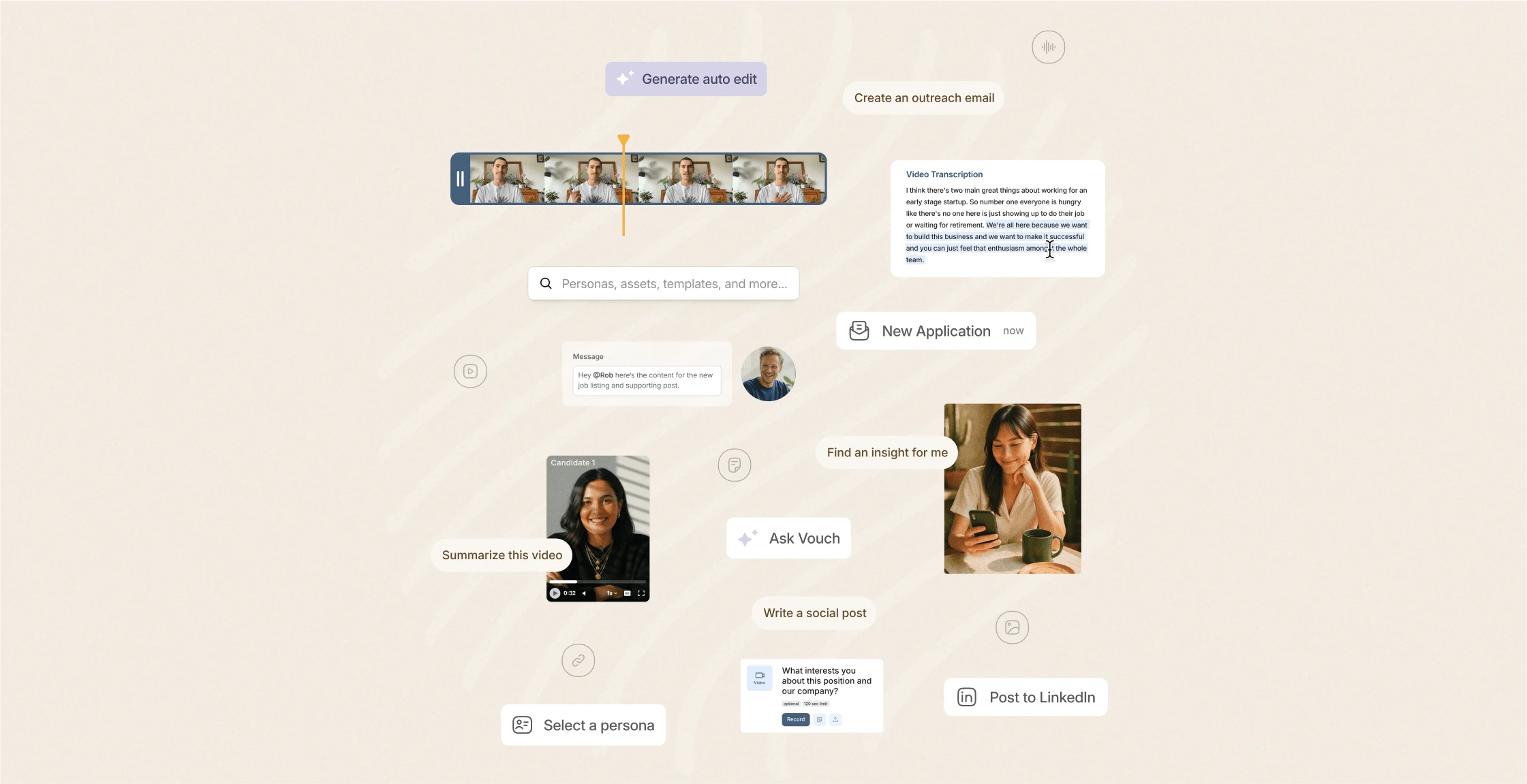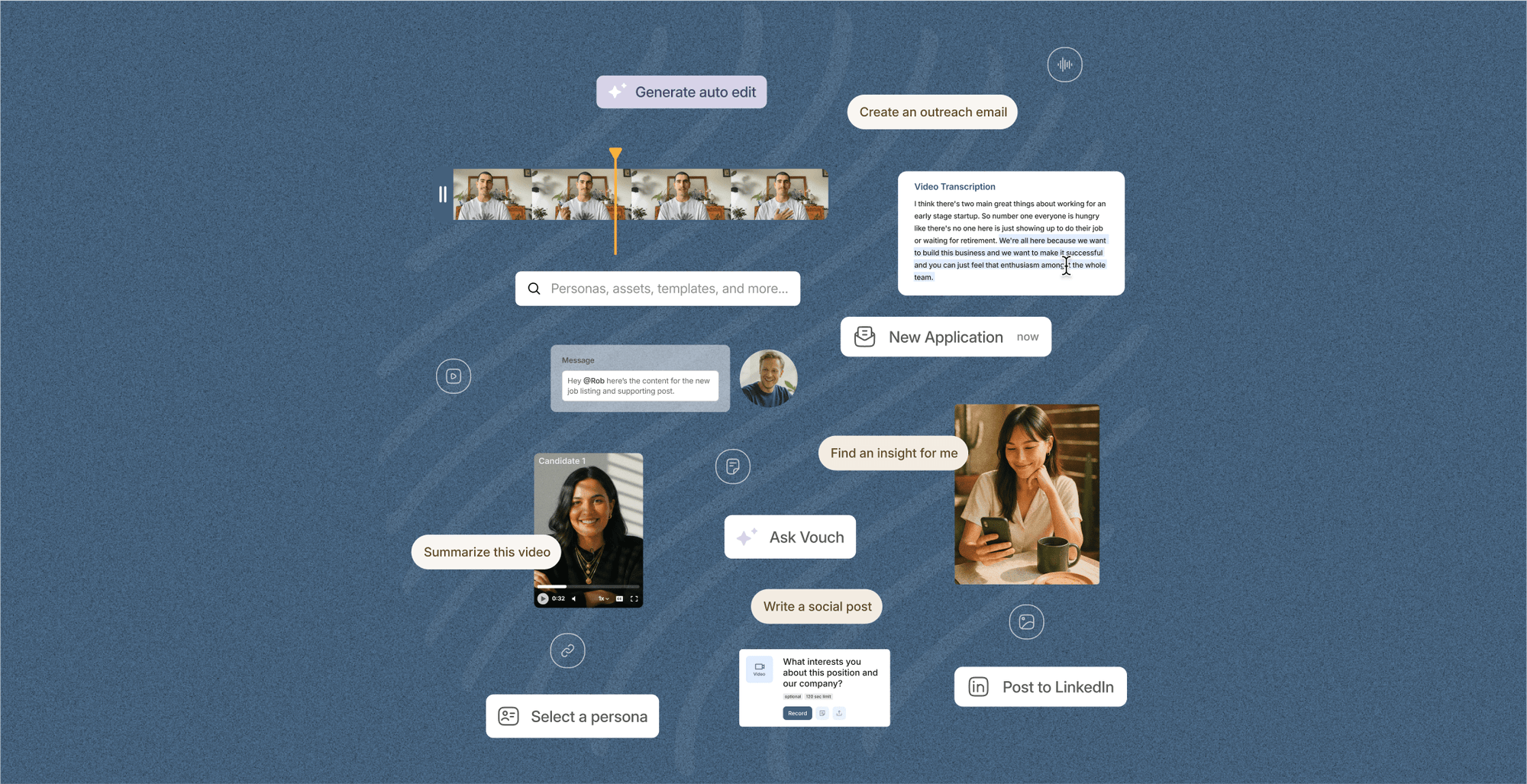Employee Value Propositions (EVP) are becoming increasingly important in today's competitive job market.
If you work in HR, you have probably noticed through your social media accounts, such as Facebook, Instagram, LinkedIn, and Twitter, the efforts leading companies are taking to attract top talent through EVPs.
Businesses today are using Employee Value Propositions to differentiate themselves by offering more than just a 9-5 paycheck.
An EVP is a unique set of benefits and rewards that an employer provides its employees in return for their skills, capabilities, and contributions. It encompasses the overall value an employee receives from their employment experience and career growth.
How you communicate your EVPs to current and prospective employees is just as important.
So let's dive in.
3 Employee Value Propositions (EVPs) From Leading Companies
Well-crafted employee value propositions showcase your company's unique core values.
It goes beyond compensation and benefits to include intangible aspects such as company culture, career development opportunities, work-life balance, and job satisfaction. When executed effectively, EVPs can strengthen your employer brand and employee engagement, boost retention rates, and improve organizational performance.
When we look at the world's leading companies, we can find many great examples of effective Employee Value Propositions that are often combined with the company's mission statements.
Here are a few of the missions and EVPs we love:
Salesforce's EVPs
"Trailblazing together." Salesforce's EVP is centered around creating community and collaboration among its diverse workforce. They offer employees opportunities for growth and development through mentorship programs, training initiatives, and volunteerism. Their commitment to social responsibility and giving back to the community is another aspect that sets them apart as an employer.
Patagonia's EVPs
"Build the best product, cause no unnecessary harm, use business to inspire and implement solutions to the environmental crisis." Patagonia's strong brand identity and values are reflected in its EVP. The company prioritizes employee well-being by offering flexible work schedules, generous time-off policies, and a casual dress code. Employees are also encouraged to participate in environmental initiatives, further reinforcing the company's mission.
Google's EVPs
Google's mission is to organize the world's information and make it universally accessible and useful." Google's mission statement reflects its focus on innovation and positively impacting society. As part of their EVPs, Google offers employees top-notch benefits such as free gourmet food, on-site gym facilities, paid sabbaticals, and generous parental leave policies. This aligns with their mission of providing a supportive and inclusive work environment for employees to thrive.
What Doe Clear Employee Value Propositions (EVP) Look Like?
A clear Employee Value Proposition can be challenging to craft, even if you offer numerous EVPs. That's where Video can help, as it gives you a medium to "show" the value proposition an employee receives from their employment experience beyond just monetary compensation. EVPs can include tangible benefits such as compensation premiums as salary, bonuses, and healthcare plans, as well as intangible aspects like company culture, work-life balance, career growth opportunities, and job satisfaction.
As we say here at Vouch, a video says a thousand words 😊 So here is an amazing Employee Value Proposition video from Google called "What it's like to work at Google" that can be used as a benchmark for an EVP video:
What Are The Benefits of Having Clear EVPs?
Having clear and well-defined employee value propositions can bring numerous benefits to your business, some tangible and some not. Some of these benefits include:
- Attracting top talent: With a strong EVP, you can stand out as an employer of choice and attract highly skilled and motivated individuals. This applies to active and passive candidates. Just watch the Google video, and you'll see the power of an EVP video.
- Employee engagement: An effective EVP should be designed to improve your current employee morale, motivation, and commitment toward everyones goals.
- Retention rates: Employees who feel valued and fulfilled in their roles are more likely to stay with the company long-term, reducing turnover rates.
- Competitive advantage: A unique EVP differentiates your company from its competitors and can be a key factor in attracting top talent away from other companies.
These benefits highlight the importance of developing compelling employee value propositions that resonate with employees and align with your organization's goals and values.
The AI-enabled workspace for talent teams.
- Unified workspace for talent teams
- Accelerate hiring with AI tools
- Auto-generate polished hiring and employer brand content
- Easily repurpose assets across all channel
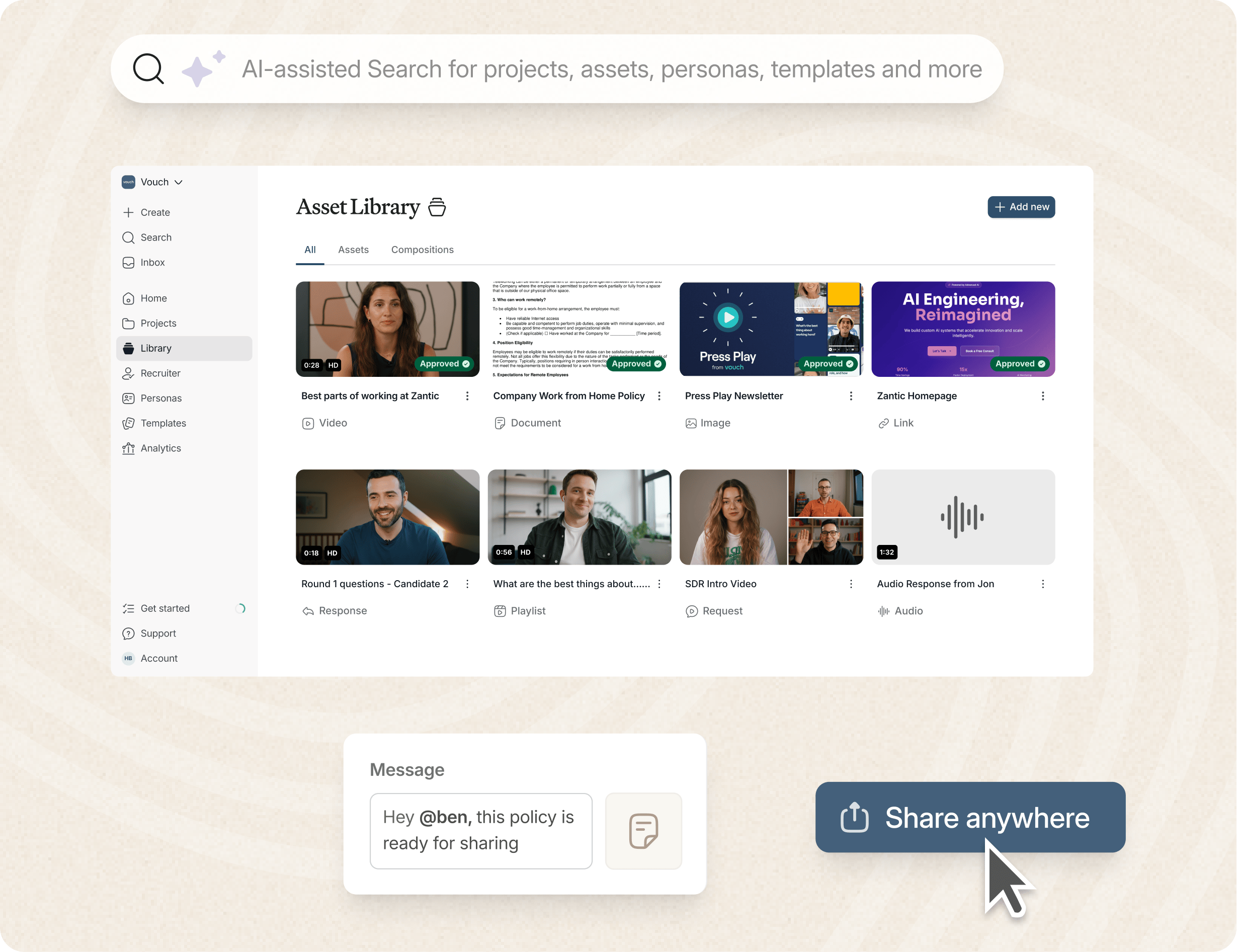
8 Tips For Creating Strong EVPs For Your Brand And Hiring Team
Developing employee value propositions that resonate with employees and align with your company's goals requires a thorough understanding of your company's employee culture, values, and needs. This is where you need to spend time to get it right, and here are some steps you can follow to craft a strong EVP:
1. Conduct employee research
Gathering insights from current employees is easier nowadays; you don't need boring, long surveys or focus groups to understand what they value most in their employment experience. Today, you can use a video tool like Vouch, and your employees can answer a few questions (that you set up) in their own time.
It is worth researching industry trends and best practices to see what other companies offer. During this process, it is crucial to involve all stakeholders, including HR, management and leadership, and employees at various levels to paint a complete picture.
2. Identify your key differentiators
Determine what sets your employee value proposition apart from others and use it as the foundation for your employee value propositions. While crafting a strong EVP, it is essential to highlight the organization's unique culture, values, employee benefits, and mission. Additionally, consider what aspects of the company are most attractive to potential employees and include them in your EVP. When we reference the Google example above, it's clear that Google's USPs are innovation, diversity, and opportunity.
3. Prioritize employee needs
From your research (with Vouch video, of course:), determine the key elements employees value most in their employment experience. This could include aspects such as work-life balance and the ability to have a personal life, professional development opportunities, or a supportive and inclusive work environment.
Use these insights to tailor your EVP to meet employee needs. If you fulfill employees' needs, they will be more likely to view your company as a desirable place to work and stay for the long-term.
4. Be 100% transparent
Ensure that your EVP accurately reflects what employees expect from their employment experience. The last thing you want to do is "polish" what a real day in an employee's life is like - as new employees (particularly top talent) will likely churn before their probation period is up. Being transparent will build trust with current and potential employees.
Be clear about your organization's expectations and what employees can contribute to the company's success. Overpromising and underdelivering can lead to more harm than good. Potential and current employees must understand your organization's culture in the true sense.
5. Define or refine your mission and values
Your employee value propositions should align with your company's overall mission and values while creating a sense of purpose for employees and reinforcing yourbrand identity. However, it is vital to regularly review and update your organization's EVP as the company, technology, and trends evolve. For example, most companies re-crafted their EVPs following COVID-19 as people got used to working at home or in a hybrid setup to reduce the daily commute.
6. Include both tangible and intangible benefits
A well-rounded EVP includes tangible (monetary and lifestyle benefits) and intangible benefits that appeal to employees. Companies like Google don't need to touch on remuneration, but many companies do to attract the best talent. Think about how you can discuss without disclosing salaries, bonuses, and healthcare plans in addition to intangible benefits such as a positive work culture, opportunities for growth and development, and a sense of purpose.
Appealing to employees from different backgrounds and with different priorities is the goal here for your employee value propositions. As every company knows, a star performer is worth their weight in gold.
7. Ensure consistency
Your EVP should be consistent across all aspects of the employee experience, from recruitment and onboarding to daily work and growth opportunities. Inconsistencies can cause confusion and distrust in any field. Therefore, ensuring that your EVP is reflected by ensuring that all employees have a consistent experience is essential. This will help solidify the organization's brand and reputation, making it an attractive workplace for top talent.
8. Review and update regularly
As organizations and industries evolve, so do their EVPs. Regularly reviewing and updating your EVP is essential to ensure it aligns with the company's current goals and values. Additionally, seeking employee feedback can help identify areas of improvement and ensure that your company's EVPs remain relevant.
So, take the time to develop and consistently review your company's EVPs to ensure they reflect your unique identity and values.
Remember: A great Employee Value Proposition is not just something you say – it's something you do. Let your actions speak louder than words, and create a workplace culture that makes employees proud to be a part of your team. This is again why Video is so powerful; you can physically show your EVPs.
How Do You Address The Different Needs Of Your Employees Through Your EVPs?
Every employee is different, and thus, their needs vary. As an organization, it is crucial to recognize and address these differences to create a supportive and inclusive work environment for your team. Here are some ways a company can address the diverse needs of their employees:
Flexible Work Arrangements
flexible hours can help accommodate the needs of employees with families or other personal responsibilities. Consider implementing a results-based work culture that focuses on productivity rather than strict working hours.
This can also help attract and retain top talent, especially experienced people who prioritize work-life balance. Flexible work arrangements can also benefit employees with disabilities or health issues, allowing them to work in a way that best suits their needs and promoting a diverse and inclusive workplace that values individual needs and differences.
Career Development Opportunities
When it comes to your employee value propositions (EVPs), providing opportunities for career growth and development can fulfill the needs of ambitious employees looking to advance in their careers - some of the best employees you can have if appropriately guided. This could include offering training programs, mentoring opportunities, and career progression plans.
Giving career opportunities to employees from diverse backgrounds can also promote a more inclusive workplace and foster a culture of equal opportunity. However, it is essential to ensure these opportunities are available to all employees, not just a select few.
Employee Resource Groups
Creating Employee Resource Groups (ERGs) that cater to different demographics within your workforce can help foster a sense of belonging and support for underrepresented employees, especially in larger companies. These groups also provide a platform for employees to share their perspectives and experiences, leading to a more inclusive and diverse workplace.
ERGs can also help educate and inform the organization on issues affecting specific employee groups. By actively supporting the needs of all your employees, you can decrease annual employee turnover and retain top talent.
Mental Health Support
In 2026, and when it comes to your employee value propositions (EVPs), mental health is essential to overall well-being, and you should prioritize supporting their employees' mental health needs. This could include offering counseling services, implementing stress management programs, or promoting work-life balance.
A mentally healthy workforce can lead to higher productivity and lower turnover rates. To make good progress, you can offer gym memberships, mental health resources, or stress management workshops. By prioritizing employee wellness, you can show they value their employees' holistic well-being and create a positive work culture.
Diversity and Inclusion Initiatives
Companies that value diversity, inclusion, equity and belonging (DEIB) and promote it, are more likely to attract top talent from diverse backgrounds. This includes implementing diversity and inclusion initiatives, such as unconscious bias training, diversity recruitment strategies, and an inclusive company culture. By actively addressing issues of diversity and inclusion, you can create a welcoming and inclusive workplace for all employees. Promoting diversity and inclusion can also help organizations tap into a wider pool of talent and perspectives, leading to increased innovation and productivity.
By addressing your employees' diverse needs, you cater to their individual needs and foster a more inclusive and supportive work environment for all team members. Remember, happy employees lead to more successful business results.
How Do You Evaluate The Success Of Your EVPs?
Now that you have crafted your employee value propositions, it is essential to implement and continually evaluate its success. Here are some tips for effectively implementing and evaluating your EVP:
- Monitor Employee Satisfaction: Track satisfaction through regular surveys or feedback sessions to see if they feel the EVP meets their needs.
- Track Employee Engagement: Observe engagement levels to see if your EVP contributes to a more engaged and motivated workforce.
- Measure Employee Retention: Monitor turnover rates to determine if your EVP effectively retains top talent.
- Seek Feedback: Encourage open communication and feedback from employees on their experiences with the EVP and areas that may need improvement.
By taking an analytical approach, you can ensure your EVP remains effective and continuously evolves to meet the changing needs of your employees and business goals. Remember, an effective EVP is not a one-time creation but an ongoing process that requires attention, adaptation, and continuous evaluation. So, keep listening, communicating, and evolving to create a strong employer brand that attracts and retains top talent.
What Are 5 More Inspirational EVP Examples?
Some other examples of effective EVPs from world-leading companies include:
"To accelerate the world's transition to sustainable energy." Tesla's mission is at the core of its EVP, focusing on innovation, sustainability, and making a positive impact. The company offers employees opportunities for growth and development through training programs and tuition assistance.
"Entertainment that moves people." Netflix's EVP is centered around creativity and providing their team with an environment in which they can bring their ideas to life. The company also offers flexible work schedules, unlimited vacation time, and generous parental leave policies.
"Make an impact that matters." Deloitte's EVP focuses on creating a sense of purpose and giving back to society. Their employees are encouraged to participate in pro bono work and volunteerism, aligning with the company's mission of positively impacting the world.
"Think different." Apple's EVP reflects the company's commitment to innovation and creativity. The company offers opportunities for growth through internal mobility programs and attractive benefits such as stock options and employee discounts on products.
Sony:
"Be moved." Sony's EVP centers around creating a passionate and dynamic work environment where employees are encouraged to express their creativity. They offer competitive compensation packages, career development opportunities, and employee recognition programs.
FAQs
What is an Employee Value Proposition (EVP)?
An Employee Value Proposition (EVP) is a set of tangible and intangible benefits that a company offers to its current employees and potential candidates. It reflects the company culture, company values, and corporate values while promoting aspects like career development opportunities, professional growth, and employee well-being. A compelling EVP is a key component of a strong employer branding strategy and helps attract talented people in a competitive job market.
How Does an Employee Value Proposition Influence Employee Retention?
A well-crafted employee value proposition directly impacts employee retention by aligning with the personal growth, career development, and professional development opportunities that successful employees seek. Companies with a strong EVP tend to have lower annual employee turnover because the employee experience resonates with individual employee aspirations, leading to a stronger commitment and higher employee engagement scores.
What Are Some Common Examples of Employee Value Propositions?
Employee value proposition examples can include both tangible benefits like competitive compensation, health insurance, unlimited vacation, and gym memberships, as well as intangible benefits such as a sense of community, psychological safety, mentorship programs, and a strong commitment to social responsibility and mental health. These benefits are designed to create a positive work environment that supports the overall well-being of employees.
How Can a Strong Employee Value Proposition Improve Recruitment?
A strong employee value proposition enhances the recruitment process by attracting prospective employees who align with the company’s key values and company mission. An EVP that highlights career growth, career path opportunities, and development opportunities appeals to potential hires looking for a company with a strong employer branding. This ultimately leads to hiring more effective employees and building a dream team.
What Role Does Employee Feedback Play in Shaping the Employee Value Proposition?
Employee feedback gathered through employee video surveys is crucial for shaping and refining the employee value proposition model. By understanding what current employees value most—whether it’s career advancement, a positive work environment, or a strong sense of community—companies can tailor their EVP to meet the needs of their workforce. This alignment not only enhances employee engagement but also supports the attraction of future employees.
How Do Companies Communicate Their Employee Value Proposition to Potential Candidates?
Companies communicate their employee value proposition to potential employees through various channels, including job descriptions, employer branding efforts, and during the hiring process. By highlighting the range of benefits, including well-being benefits and development opportunities, companies can showcase their commitment to diversity, inclusivity, and employee resource support, making their EVP a key factor in attracting attractive employees in a competitive labor market.
Why Is an Employee Value Proposition Important in Today's Job Market?
In today’s labor market, where potential candidates have numerous options, an attractive employee value proposition is essential for standing out as a strong employer. An EVP that reflects your company culture, offers meaningful career opportunities, and ensures employee well-being not only attracts top talent but also fosters long-term hire commitment and employee engagement. This holistic approach is a key component of successful employer branding and contributes to building a compelling employee experience.
Conclusion
Compelling Employee Value Propositions (EVPs) are crucial in attracting, engaging, and retaining top talent within your business. Companies can create compelling EVPs that set them apart from their competitors by understanding what motivates and satisfies their team.
An effective EVP consists of a clear and concise statement communicating the unique benefits and opportunities your staff can expect when working in your teams. It encompasses a combination of tangible rewards - such as competitive compensation, comprehensive benefits, and career development opportunities- and intangible factors like work-life balance, company culture, and a sense of purpose.
If you are looking to create or update your EVP, be sure to check out Vouch.
Showcase Your EVPs With Vouch!
Loved by companies like Canva, Nike, Cisco, HubSpot, and Amazon, tools like Vouch make leveraging video in your business remarkably easy.
Be sure to book a Vouch demo today and chat with a video content expert.
You might also like

Elevate Your Brand Today With Vouch
Discover how Vouch can accelerate talent acquisition while helping you stay on-brand.

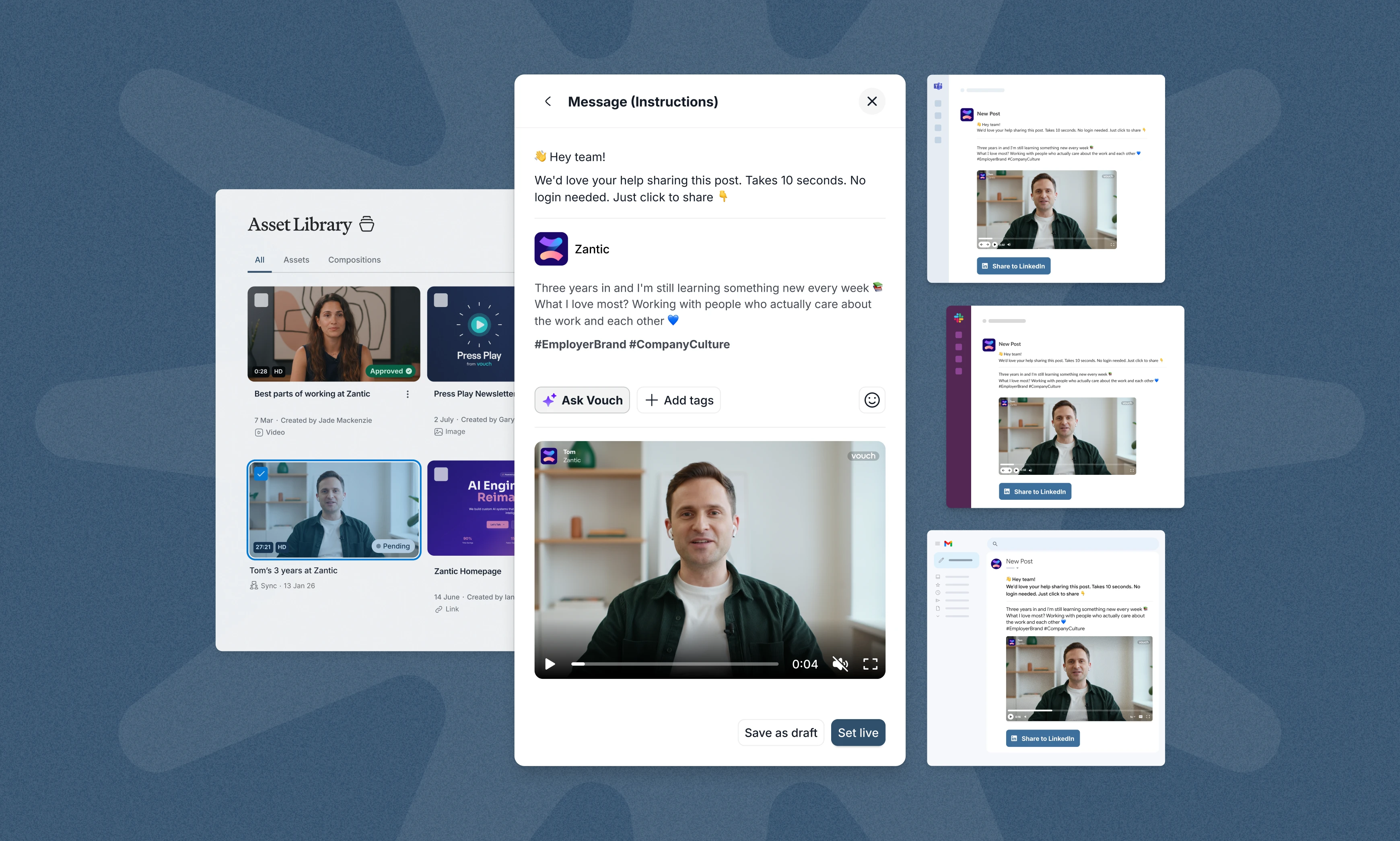
%20%26%20Expert%20Tips.webp)

